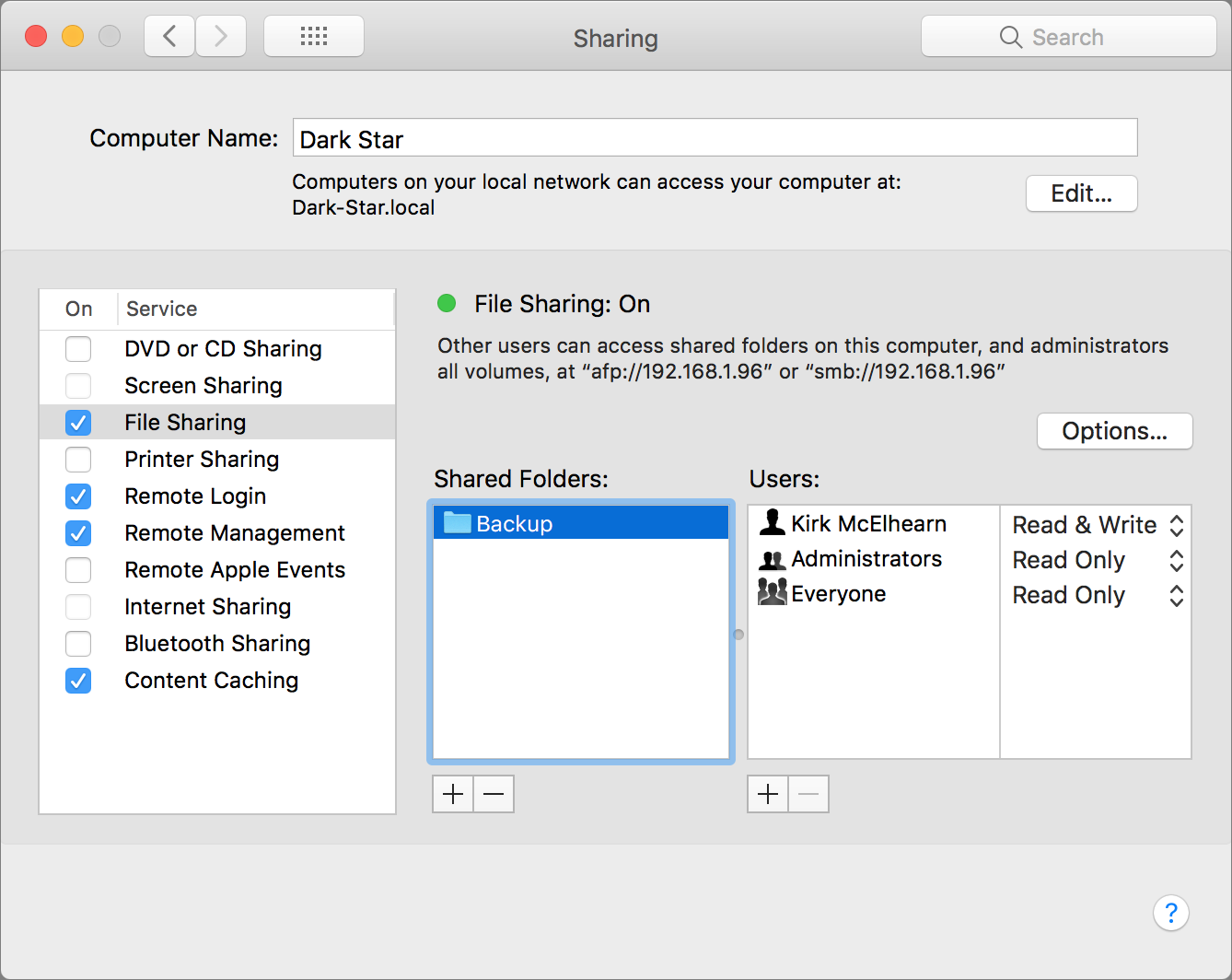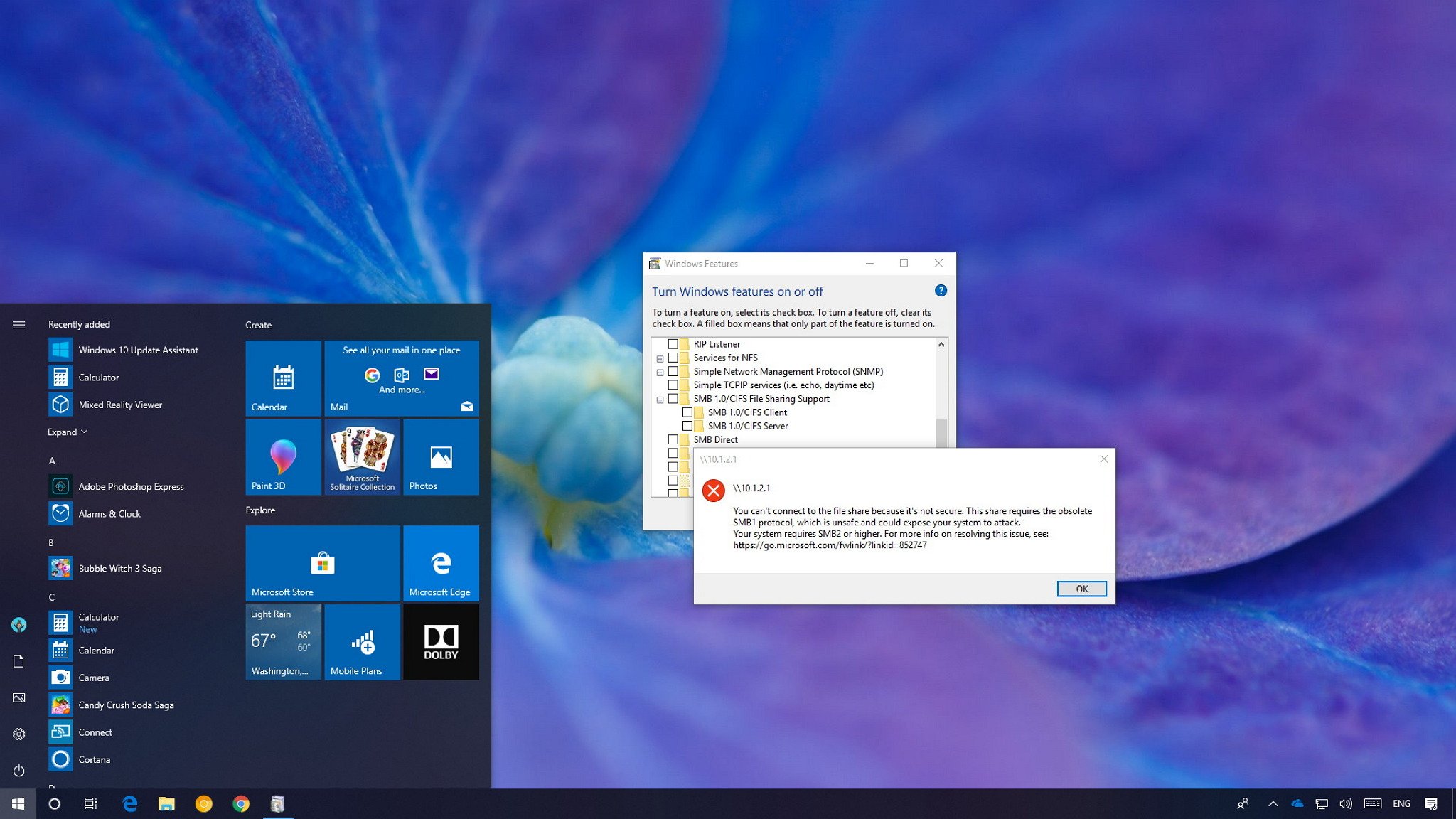Replacement Smb Client For Mac
Posted By admin On 01.02.19Feb 24, 2016 However so client Mac's will still try to connect via SMB when you open a Finder window, go to shared and click on the server and say connect as. Is there any way i can turn off the ability to connect to a server via SMB for a client Mac? My Windows 7 x64 SP1 client successfully connected to SMB shared folders on my MAC Mini Server Mountain Lion (OS X 10.8). After upgrading to Maverick (OS X 10.9) and Server 3.0 my Windows 7 x64 SP1 client cannot connect to the SMB shares anymore.
Ftp client for mac osx 10.6.8. Runs on Windows, Linux, *BSD, Mac OS X and more • IPv6 support • Available in many languages • Supports resume and transfer of large files >4GB • Powerful Site Manager and transfer queue • Drag & drop support • Configurable Speed limits • Filename filters • Network configuration wizard • Remote file editing • Keep-alive • HTTP/1.1, SOCKS5 and FTP-Proxy support. Features of FileZilla include the following: • Easy to use • Supports FTP, FTP over SSL/TLS (FTPS) and SSH File Transfer Protocol (SFTP) • Cross-platform.
When users on OSX 10.10 connect to a remote server (SRV02) fileshare via SMB, they are unable to search the file share. When they do, it just hangs (pinwheel of death). There are several users on OSX that need to be able to search files on the server. Windows 8 users do not seem to be affected as search results appears as expected (albeit slow, at times). My questions is: is there a service/file indexing service that lives on SRV02 that just indexes files and provides a catalog to the remote computers (Mac's and PC's) to use when they try searching the server? You have to disable access based enumeration on the windows file share and force the mac clients to use SMB1.
Also, don't give full control to CREATOR OWNER: uncheck Full Control, Change Permissions, and Take Ownership. The mac ACLs will screw you in the long run unless you uncheck those permissions. In order to enforce SMB1 on a mac client: • Create the Global Config: $ sudo -s $ sudo echo '[default]' >> /etc/nsmb.conf $ sudo echo 'smb_neg=smb1_only' >> /etc/nsmb.conf • Restart the OS X Client • Create a new AD Test user • Log in and check if the issue still persists This works in 10.9 and 10.10.

There is actually a semi-similar thread going on, though it's Casper focused, the underlying issue is that SMB2 and SMB in Windows 2008R2 just don't seem to work well together at all at the moment. These two off site threads may be helpful, but any suggestions in there are in the 'at your own risk' category. This thread on Apple's discussion forums goes into the problems users are experiencing (slowness, authentication issues, long waits, etc.) a bit more: The most common fix I keep coming across online is to connect using CIFS:// instead of smb as this would force the Mac to use the slower SMB1 protocol, but also would take care of a lot of the not so nice behaviors seen with SMB2. Mac client for lync.
Smb Server Windows 10

Mac Smb Slow
Has posted a workaround to force use of the SMB1 protocol on OS X clients, but it's a use at your own risk workaround, as we have not tested it thoroughly here and can't guarantee it will work or won't break things. Still, it's worth taking a look at. Amanda Wulff JAMF Software Support. I hear you on that! File sharing turned a little hairy with 10.9 on a few fronts. Most of the other issues were taken care of by 10.9.4 (10.9.2 and 10.9.3 took care of a lot of the AFP and WebDAV issues, thankfully!), but that SMB2 vs SMB on Windows thing looks like one of their sticky ones.
The issue between SMB2 and SMB on Windows 2008R2 is one we've been looking into for some time, since it's had a pretty negative effect on Casper Admin and its ability to not only compile configurations but to even mount Windows based distribution points entirely. Not a fun situation for anyone. I'd love for something new to come up as well, from a JAMF point and just in general, as we're very aware that this is a pretty inconvenient problem for customers who are in a heavy Windows environment or who have a Windows SMB share as their primary distribution point. It's pretty frustrating for customers and for support (believe me, nobody here likes having to say 'it's a third party issue and we don't really have a good/easy way around it yet'!) and there doesn't yet seem to be a good way to get around it effectively. If there is, I've just been super unlucky in finding it. The defect we have open is actively being worked on.